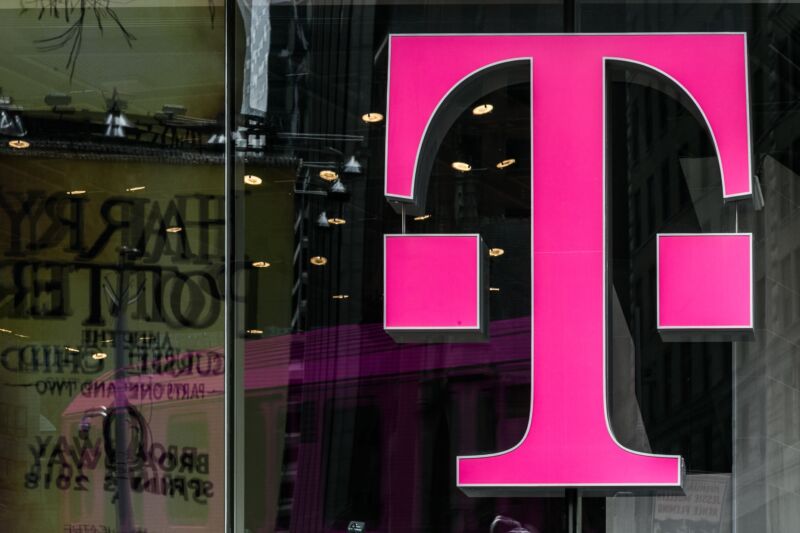
T-Mobile apparently lied to government regulators about its 3G shutdown plans in order to win approval of its merger with Sprint, according to a ruling in a proceeding in front of the California Public Utilities Commission (CPUC). The ruling issued Friday ordered T-Mobile “to show cause why it should not be sanctioned by the commission for violating” a CPUC rule with “false, misleading, or omitted statements.”
T-Mobile won approval for its 2020 acquisition of Sprint in part by agreeing to sell Sprint’s Boost Mobile prepaid business and other assets to Dish, which is building its own 5G network and reselling capacity from other networks. T-Mobile agreed to make its 4G LTE and 3G CDMA networks available to Dish customers during a three-year transition period from 2020 to 2023, the CPUC ruling said. But T-Mobile now plans to stop providing CDMA network services nationwide on January 1, 2022, and Dish has urged government regulators to force T-Mobile to live up to its commitments.
T-Mobile’s false and misleading statements under oath indicated, among other things, that T-Mobile would make its CDMA network “available to Boost customers until they were migrated to Dish Network Corporation’s LTE or 5G services” and that Dish would have up to three years to complete the migration, the ruling said.
The CPUC can impose penalties against T-Mobile of up to $100,000 for each offense.
T-Mobile used “false” statements to get merger done
The ruling was made by Administrative Law Judge Karl Bemesderfer and a CPUC commissioner who was assigned to the case, Clifford Rechtschaffen. They ordered T-Mobile to appear via video conference at a hearing before the administrative law judge on September 20.
Their ruling said there is “a reasonable basis to conclude that T-Mobile… misrepresented material facts and misled the commission” with statements under oath. The ruling said that when the CPUC allowed the merger, it “relied on the specific false statements, omissions, and/or misleading assurances T-Mobile gave regarding its use of [Sprint’s] PCS spectrum and its repeated references to a three-year customer migration period without a degraded experience… it appears that these false statements, omissions and/or misleading assurances and the related time references were intended to induce the commission to approve the merger.” The premerger statements made in testimony to the commission were later contradicted by T-Mobile’s response to a Dish complaint, the ruling said.
“The discrepancy between information in T-Mobile’s testimony and information provided in its response is so serious that it warrants further investigation by this commission. Furthermore, impacts on service could harm Boost prepaid customers, who are frequently low-income, rural, and transient,” the ruling said.
The CPUC fight may extend beyond 3G, as the ruling said that “upon further investigation, we may amend this Order to Show Cause to include charges related to the early retirement of the Sprint LTE network.”
T-Mobile/Dish feud escalates
When contacted by Ars today, T-Mobile said the decision “is meritless and without basis in fact. We look forward to presenting evidence and setting the record straight through the upcoming process. For months, T-Mobile has been working aggressively to ensure no customer is left behind as we transition to technology that will better serve them into the future. We remain committed to that goal.”
In a blog post last week, T-Mobile CEO Mike Sievert called the situation “a manufactured crisis, orchestrated by Dish” and accused Dish of “dragging their feet in getting their customers upgraded to the superior 4G/5G world.” Sievert also suggested that Dish customers switch to T-Mobile to “get onto more advanced and reliable technology.”
Dish, which recently decided to switch most of its network traffic from T-Mobile to AT&T, has said T-Mobile should have to maintain the 3G CDMA network until at least July 2023, three years after Dish’s purchase of Boost. Dish told the Federal Communications Commission that T-Mobile’s “blatantly anticompetitive decision to prematurely shut down the operation of the legacy Sprint CDMA network” will likely “harm millions of Boost consumers, [including] many who already face economic challenges.”
T-Mobile “contradicted sworn statements”
T-Mobile is moving its PCS spectrum from CDMA to 5G, even though it previously “omitted and/or provided misleading information regarding the fact that PCS spectrum was used to provide service to Boost customers on the CDMA network” and “never indicated that using PCS spectrum for CDMA service could impact T-Mobile’s 5G buildout,” the ruling said.
After Dish complained to the CPUC in April 2021, “T-Mobile flatly contradicted its witness [CTO Neville] Ray’s prior statements regarding the type of spectrum needed for CDMA and 5G service, now saying that ‘PCS spectrum comprises the significant majority of spectrum being used to provide CDMA.'” In premerger testimony, Ray listed the types of spectrum T-Mobile needed for 5G “several times” but never mentioned PCS spectrum.
“T-Mobile further contradicted prior sworn statements that maintaining CDMA services would not delay its 5G buildout, now saying that the buildout requires both the PCS spectrum and the cell towers presently employed to provide CDMA service including the equipment on the towers,” the ruling said.
Before the merger was approved, Ray said in testimony that T-Mobile’s MVNO [mobile virtual network operator] agreement with Dish “will have no adverse impact at all on our existing LTE network or on our planned world-leading 5G network,” the CPUC ruling said.
“In a December, 2019 pleading, T-Mobile stated that its ‘service to existing Sprint CDMA and LTE customers will be maintained until they are migrated to the New T-Mobile network as customers of New T-Mobile or Dish,'” the ruling said. “Emphasizing the three-year duration of the migration period (‘That’s why we’ve always said it’s a three-year integration program’), T-Mobile pledged ‘to make sure that no Sprint customer during that migration process, be they a Boost customer or a Sprint customer… suffers anything approaching a degraded experience.”
Summary of findings
The CPUC commissioner and administrative law judge’s ruling summarized T-Mobile’s false and misleading statements as follows:
Specifically, 1) T-Mobile previously represented that it would not need PCS spectrum for its 5G build-out and the 800 MHz spectrum would be used for CDMA service for Boost customers but now indicates a significant need for PCS spectrum for both CDMA service and its 5G build-out, 2) T-Mobile generally stated that the MVNO agreement with Dish would have no adverse impact on T-Mobile’s existing and 5G networks but now claims that maintaining the CDMA network would delay the 5G build-out, and 3) T-Mobile previously stated that service would be maintained for Boost customers until migration was completed during the migration period (2020-2023), but now contends that it cannot delay its planned shutdown of its CDMA network on January 1, 2022, which could impair the service of customers who have not yet migrated to Dish’s LTE or 5G service.
Department of Justice has “grave concerns”
The US Department of Justice said in a letter to both Dish and T-Mobile on July 9 that it has “grave concerns about the potential for a nationwide CDMA shutdown to leave a substantial proportion of Boost’s customers without service.” The DOJ said that either or both companies could potentially violate the merger agreement “if the network shutdown strands a substantial proportion of Boost customers, particularly if either or both parties have not taken all appropriate steps to affirmatively alleviate any such harms in the leadup to implementing the network shutdown.”
While T-Mobile is forbidden from “impeding Boost’s customer relationships, rejecting their lawful traffic, and unreasonably frustrating Dish’s use of T-Mobile’s networks,” Dish is required “to pursue all available avenues to prevent a widespread loss of services to the customers,” the DOJ said.








